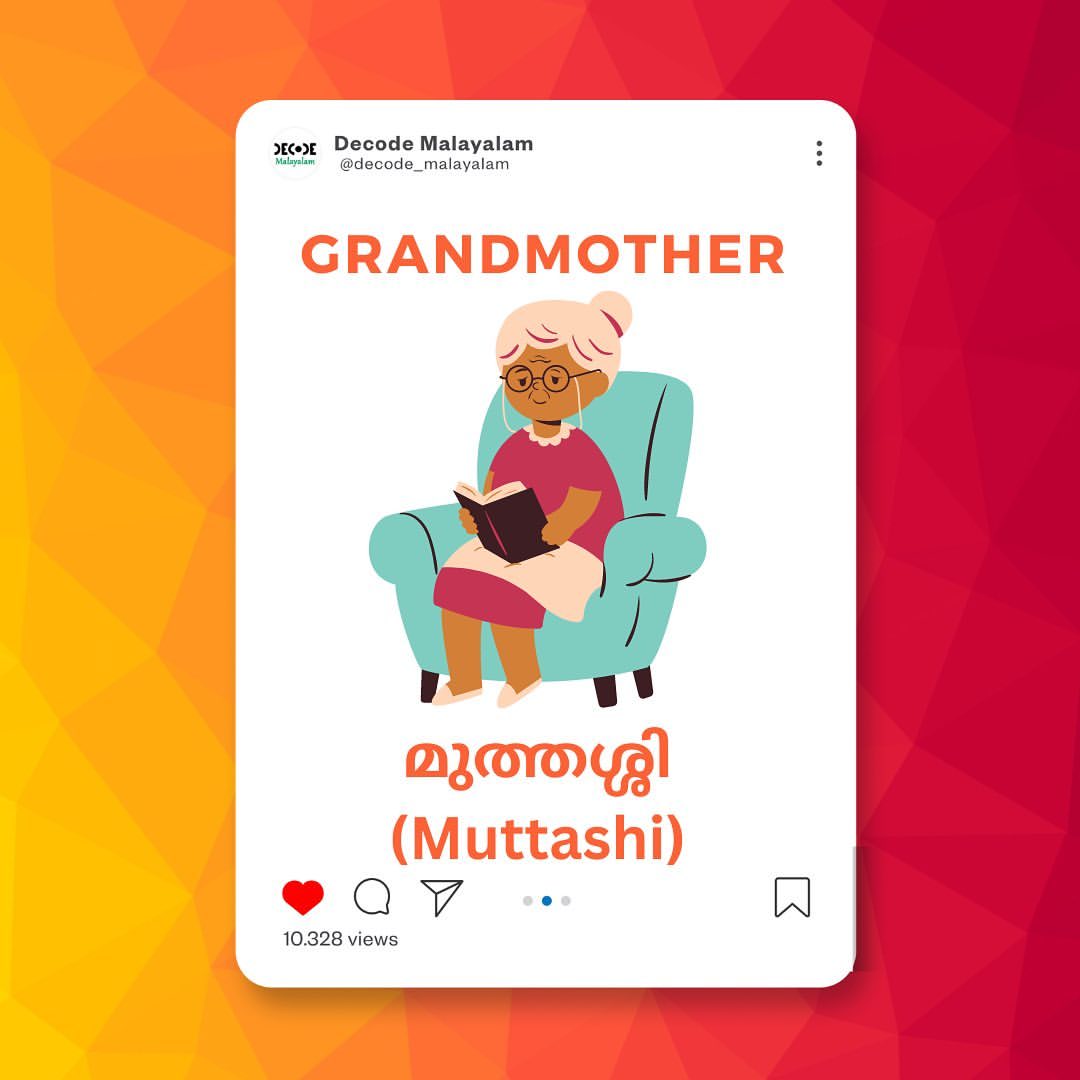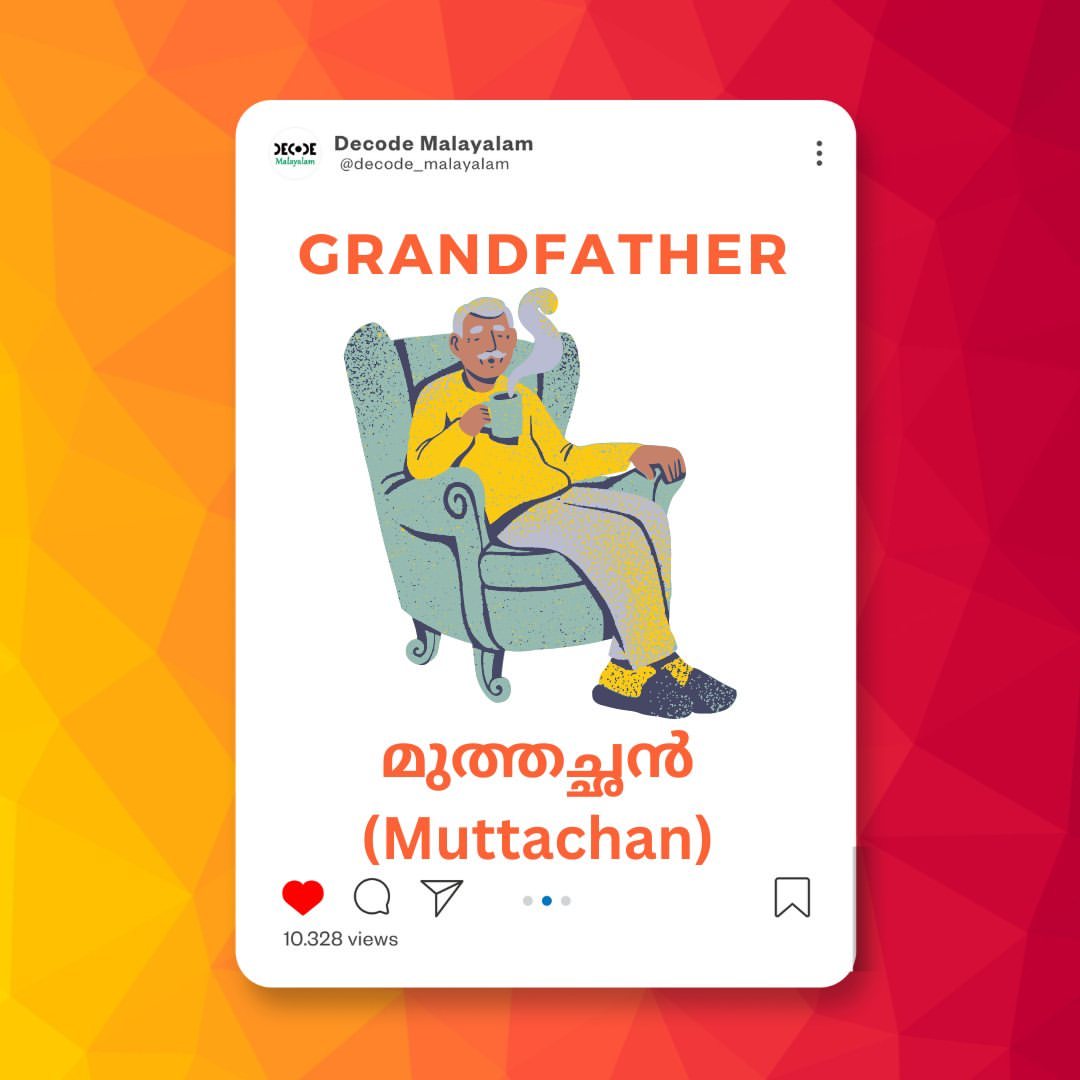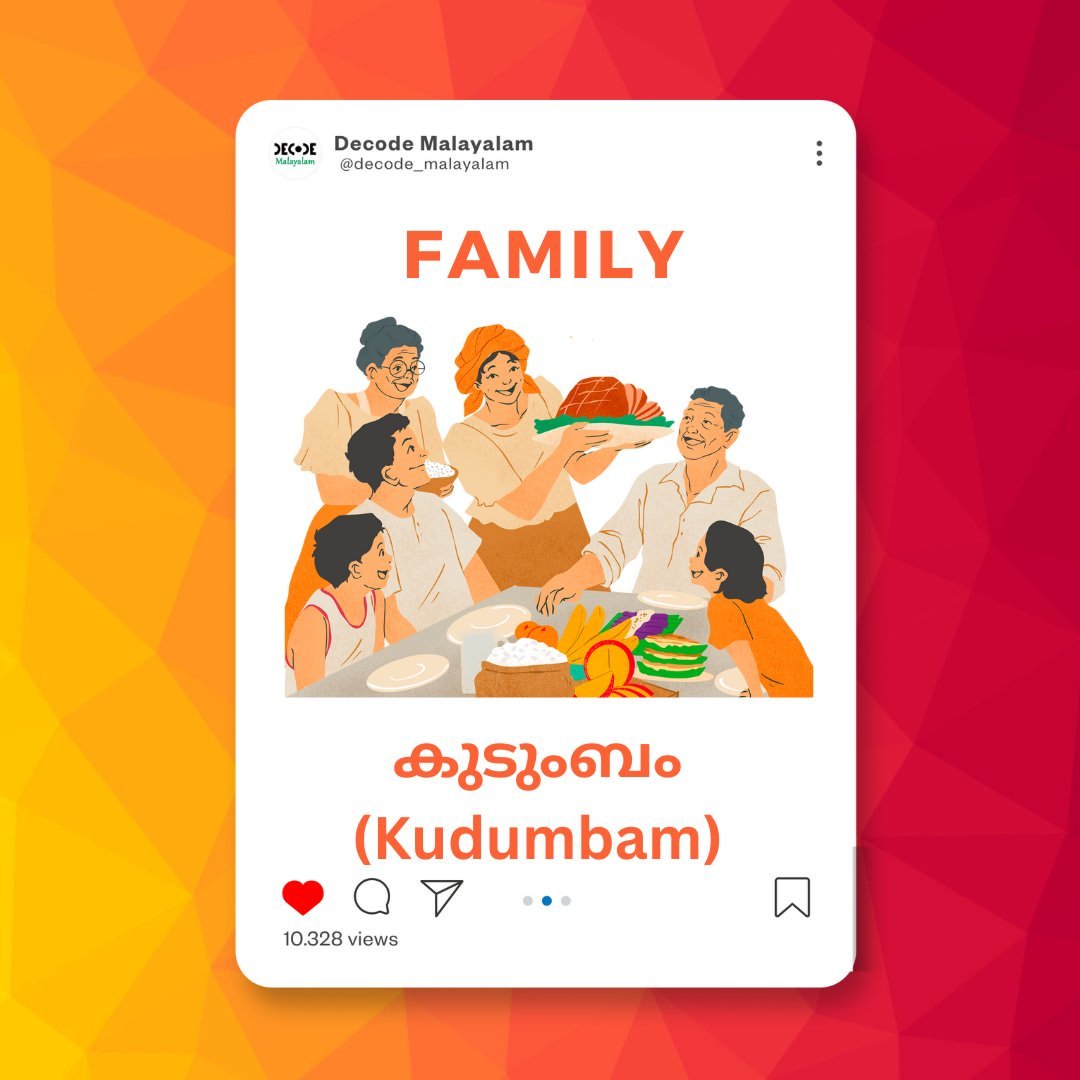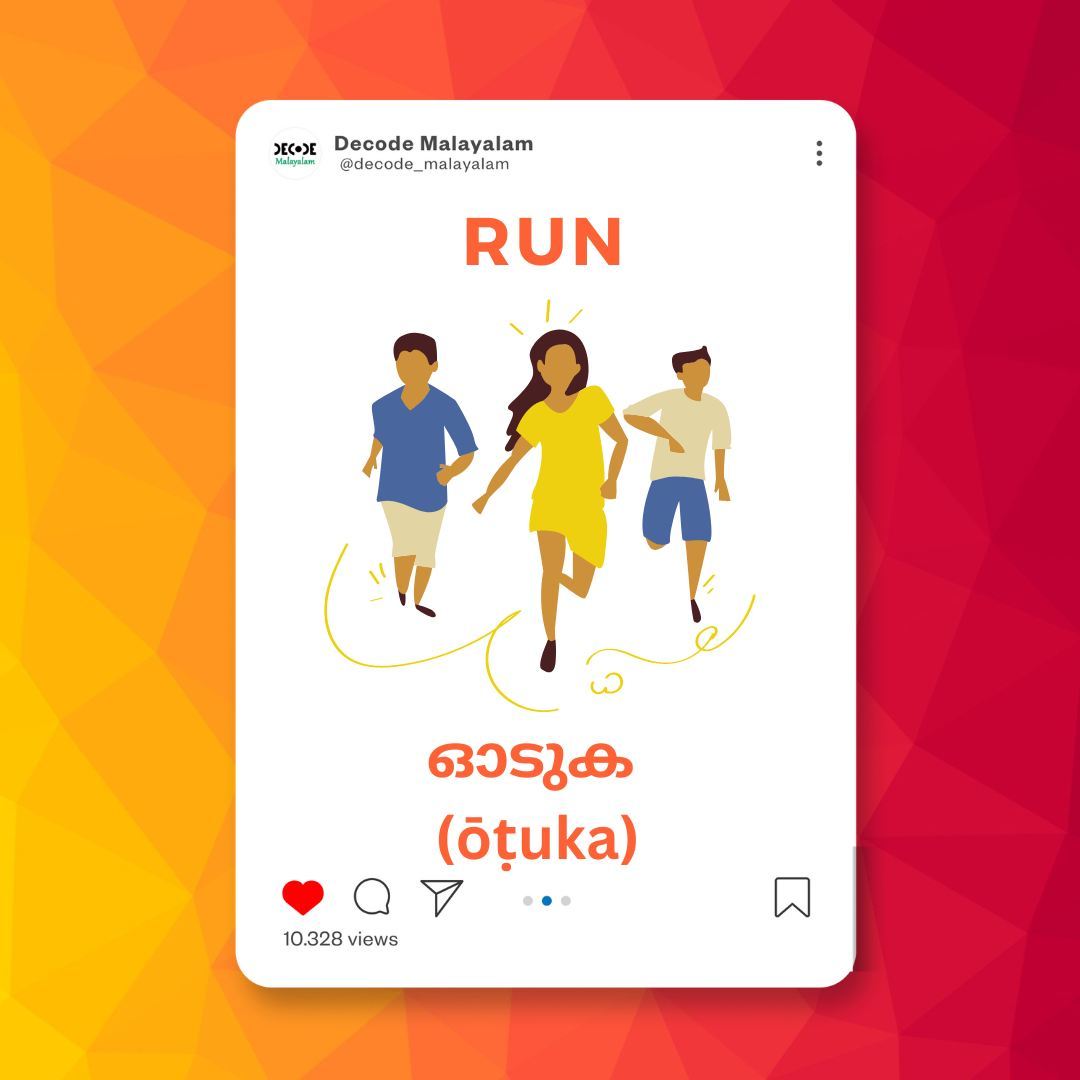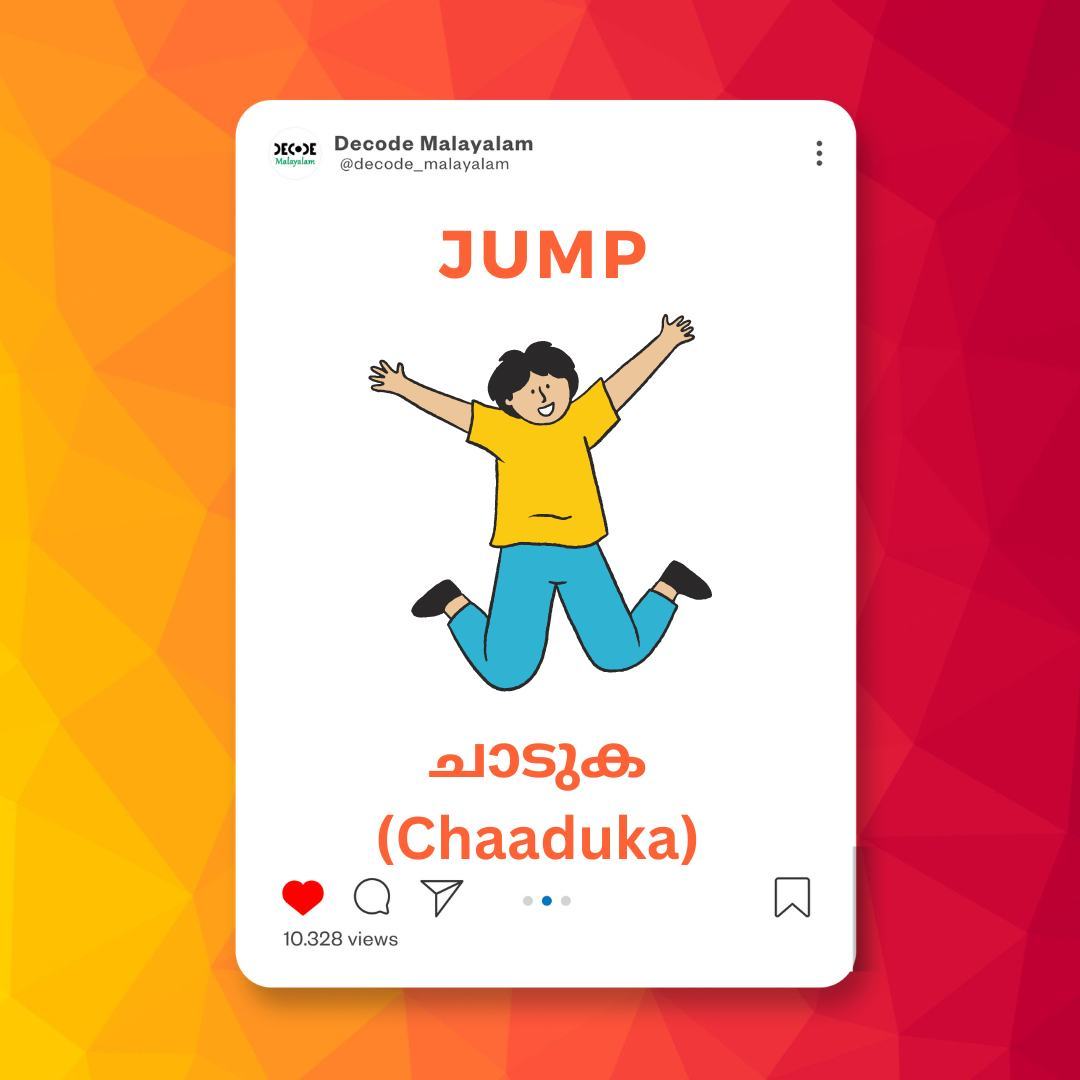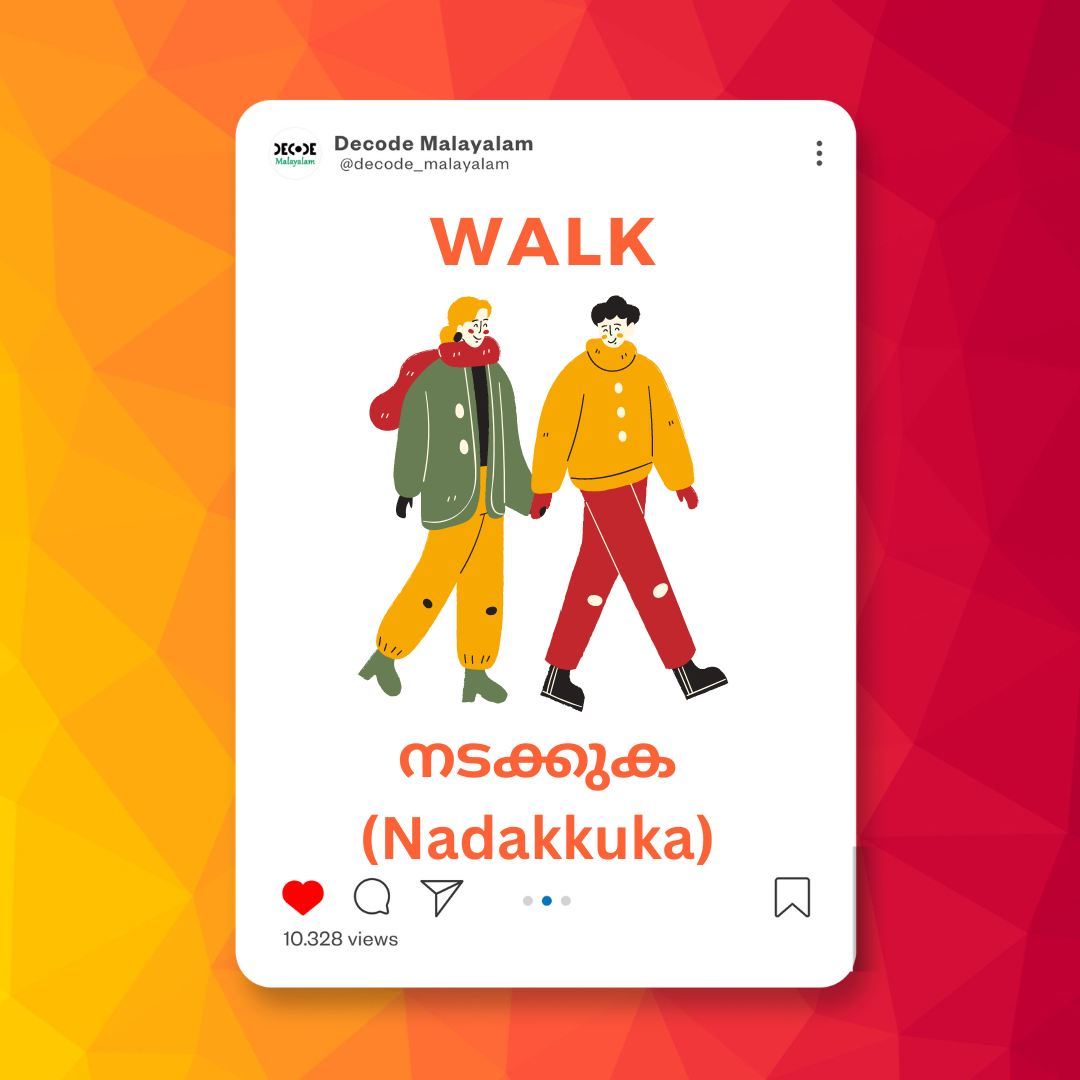Welcome, language adventurer! Have you ever walked into a room and wished you could name every object around you in Malayalam? Imagine the satisfaction of pointing to your favorite കസേര (kasēra) or asking for the പുതപ്പ് (putappŭ) on a chilly Kerala evening. Learning the names of everyday objects around your house isn’t just about expanding your vocabulary; it’s about making Malayalam a living, breathing part of your daily life. It transforms your home into a dynamic classroom, where every item becomes a flashcard, and every glance is a learning opportunity.
In Kerala, where homes are often vibrant hubs of family life and hospitality, knowing these words can deepen your connection to the culture. It’s about more than just translation; it’s about understanding the subtle nuances of life in the God’s Own Country. From the aroma of spices wafting from the അടുപ്പ് (aṭuppŭ) in a traditional kitchen to the soft glow of a വിളക്ക് (viḷakkŭ) in the living room, every object tells a story. This comprehensive guide will take you on a linguistic tour of your own house, from the bustling kitchen to the cozy bedroom, equipping you with the Malayalam words you need to navigate your domestic world with confidence and fluency. Let’s transform your surroundings into an immersive Malayalam learning environment!
Stepping Through the Threshold: General Household Essentials
Before we dive into specific rooms, let’s begin with some fundamental objects you’ll find throughout almost any home in Kerala, or indeed, anywhere in the world. These are the building blocks of your domestic Malayalam vocabulary.
- വാതിൽ (vātil) – Door
- Context: The door is often the first point of interaction with a home, a symbol of welcome or privacy. In Kerala, doors are often intricately carved, especially in older, traditional houses.
- Example Sentence: വാതിൽ അടക്കുക. (vātil aṭakkuka.) – Close the door.
- (Imagine audio pronunciation here)
- ജനൽ (janāl) – Window
- Context: Windows offer glimpses of the outside world – lush greenery in Kerala, bustling streets, or quiet paddy fields. They bring in light and the refreshing breeze.
- Example Sentence: ജനൽ തുറക്കൂ. (janāl tuṟakkū.) – Open the window.
- (Imagine audio pronunciation here)
- ഭിത്തി (bhitti) – Wall
- Context: The canvas of a home, often adorned with photographs of family, traditional artwork, or even calendars with local festival dates.
- Example Sentence: ചിത്രം ഭിത്തിയിൽ തൂക്കിയിടുക. (citraṁ bhittiyil tūkkīyiṭuka.) – Hang the picture on the wall.
- (Imagine audio pronunciation here)
- തറ (taṟa) – Floor
- Context: In many Kerala homes, especially older ones, floors might be polished concrete, red oxide, or even traditional clay tiles, often kept spotlessly clean.
- Example Sentence: തറ വൃത്തിയാക്കുക. (taṟa vr̥ttiyākkuka.) – Clean the floor.
- (Imagine audio pronunciation here)
- മേൽക്കൂര (mēlkūra) – Roof
- Context: Essential for shelter, roofs in Kerala homes often feature sloped tiles to cope with heavy monsoon rains, adding to the region’s distinctive architectural style.
- Example Sentence: വീടിന് പുതിയ മേൽക്കൂരയുണ്ട്. (vīṭinŭ putiya mēlkūrayuṇṭŭ.) – The house has a new roof.
- (Imagine audio pronunciation here)
The Heart of the Home: Kitchen Essentials
The kitchen is arguably the most dynamic and aromatic space in any Kerala home. It’s where the magic of authentic Malayalam cuisine happens, filled with a cacophony of sounds and a symphony of smells. Knowing these words will help you engage in the preparation of a delicious Sadhya or simply ask for a glass of water.
- അടുപ്പ് (aṭuppŭ) – Stove/Cooker
- Context: From traditional wood-fired chulhas to modern gas stoves, the aṭuppŭ is central to cooking. The sounds and smells from the aṭuppŭ are often the first signs of life in a Kerala home in the morning.
- Example Sentence: അടുപ്പിൽ തീ കത്തിക്കുക. (aṭuppil tī kattikkuka.) – Light the stove.
- (Imagine audio pronunciation here)
- പാത്രം (pātraṁ) – Utensil / Vessel / Dish
- Context: A versatile word for any kind of container used for cooking or serving food. You’ll hear this word constantly in a Kerala kitchen.
- Example Sentence: പാത്രങ്ങൾ കഴുകുക. (pātraṅṅaḷ kaḻukuka.) – Wash the dishes.
- (Imagine audio pronunciation here)
- കത്തി (katti) – Knife
- Context: Essential for chopping vegetables or slicing fruits, the katti is a fundamental kitchen tool.
- Example Sentence: ഈ കത്തി മൂർച്ചയുള്ളതാണ്. (ī katti mūṟcayuḷḷatāṇŭ.) – This knife is sharp.
- (Imagine audio pronunciation here)
- സ്പൂൺ (spūṇ) – Spoon
- Context: Whether for stirring, serving, or eating, spoons are indispensable.
- Example Sentence: ഒരു സ്പൂൺ തരൂ. (oru spūṇ tarū.) – Give me a spoon.
- (Imagine audio pronunciation here)
- ഗ്ലാസ് (glās) – Glass
- Context: For water, tea, or juice – the glās is a universal item.
- Example Sentence: ഒരു ഗ്ലാസ് വെള്ളം. (oru glās veḷḷaṁ.) – A glass of water.
- (Imagine audio pronunciation here)
- ഫ്രിഡ്ജ് (phriḍjŭ) – Refrigerator
- Context: While modern, it’s become an essential appliance in almost every Kerala home, especially with the tropical climate.
- Example Sentence: ഭക്ഷണം ഫ്രിഡ്ജിൽ വെക്കുക. (bhakṣaṇaṁ phriḍjil vekkuka.) – Put the food in the fridge.
- (Imagine audio pronunciation here)
- അലമാര (alamāra) – Cupboard / Wardrobe
- Context: Used in kitchens for storing utensils or groceries, and in bedrooms for clothes. This word is highly versatile.
- Example Sentence: പാത്രങ്ങൾ അലമാരയിൽ വെക്കുക. (pātraṅṅaḷ alamārayil vekkuka.) – Put the dishes in the cupboard.
- (Imagine audio pronunciation here)
Comfort and Rest: Bedroom Vocabulary
The bedroom is your personal sanctuary, a place for rest and relaxation. Knowing the names of objects here will help you describe your needs for comfort in Malayalam.
- കട്ടിൽ (kaṭṭil) – Bed (often referring to a cot or bed frame)
- Context: In Kerala homes, traditional wooden beds (kaṭṭil) are common, often with intricate carvings.
- Example Sentence: കട്ടിൽ വലുതാണ്. (kaṭṭil valuttāṇŭ.) – The bed is big.
- (Imagine audio pronunciation here)
- കിടക്ക (kiṭakka) – Mattress / Bedding
- Context: This refers specifically to the soft part you sleep on.
- Example Sentence: പുതിയ കിടക്ക വാങ്ങണം. (putiya kiṭakka vāṅṅaṇaṁ.) – Need to buy a new mattress.
- (Imagine audio pronunciation here)
- തലയിണ (talayiṇa) – Pillow
- Context: Essential for a good night’s sleep.
- Example Sentence: തലയിണ മൃദുവാണ്. (talayiṇa mr̥duvāṇŭ.) – The pillow is soft.
- (Imagine audio pronunciation here)
- പുതപ്പ് (putappŭ) – Blanket / Quilt
- Context: Necessary during cooler nights, especially in the hilly regions of Kerala or during monsoon.
- Example Sentence: ഈ പുതപ്പ് ചൂടുള്ളതാണ്. (ī putappŭ cūṭuḷḷatāṇŭ.) – This blanket is warm.
- (Imagine audio pronunciation here)
- ഫാൻ (phān) – Fan
- Context: Given Kerala’s tropical climate, fans (especially ceiling fans) are ubiquitous.
- Example Sentence: ഫാൻ ഓൺ ചെയ്യൂ. (phān ōṇ ceyyū.) – Turn on the fan.
- (Imagine audio pronunciation here)
- വിളക്ക് (viḷakkŭ) – Lamp / Light
- Context: A versatile word for any source of light, from a traditional oil lamp to a modern electric bulb.
- Example Sentence: വിളക്ക് പ്രകാശിപ്പിക്കുക. (viḷakkŭ prakāśippikkuka.) – Light the lamp.
- (Imagine audio pronunciation here)
Refreshing Spaces: Bathroom Basics
Even the most private spaces hold opportunities for language learning. Knowing these words will help you ask for necessities or describe items in the bathroom.
- സോപ്പ് (sōppŭ) – Soap
- Context: A universal item for hygiene.
- Example Sentence: കൈ സോപ്പ് ഉപയോഗിച്ച് കഴുകുക. (kai sōppŭ upayōgiccŭ kaḻukuka.) – Wash hands with soap.
- (Imagine audio pronunciation here)
- തൂവാല (tūvāla) – Towel
- Context: For drying off after a refreshing bath.
- Example Sentence: ഒരു തൂവാല തരൂ. (oru tūvāla tarū.) – Give me a towel.
- (Imagine audio pronunciation here)
- കണ്ണാടി (kaṇṇāṭi) – Mirror
- Context: Used for checking your appearance or for traditional beauty rituals.
- Example Sentence: കണ്ണാടിയിൽ നോക്കൂ. (kaṇṇāṭiyil nōkkū.) – Look in the mirror.
- (Imagine audio pronunciation here)
- ബക്കറ്റ് (bakkaṭṭŭ) – Bucket
- Context: Very common in Kerala bathrooms, used for storing water, especially for bucket baths.
- Example Sentence: ബക്കറ്റിൽ വെള്ളം നിറയ്ക്കുക. (bakkaṭṭil veḷḷaṁ niṟaykkuka.) – Fill the bucket with water.
- (Imagine audio pronunciation here)
- ചൂല് (cūlŭ) – Broom
- Context: For sweeping and keeping the house clean. Even in modern homes, a traditional broom is often used for quick clean-ups.
- Example Sentence: ചൂല് എവിടെയാണ്? (cūlŭ eviṭeyāṇŭ?) – Where is the broom?
- (Imagine audio pronunciation here)
Organizing Your Learning: Practice Tips
Learning these words is just the beginning! To truly embed them in your memory and make them a natural part of your Malayalam conversation, consistent practice is key.
- Label Your Home: Write the Malayalam word (and transliteration) on sticky notes and attach them to the actual objects in your house. Every time you see them, say the word aloud.
- Narrate Your Day: As you move around your home, verbally describe your actions using the new vocabulary. “ഞാൻ പാത്രം കഴുകുന്നു.” (I am washing the dishes). “ഞാൻ കസേരയിൽ ഇരിക്കുന്നു.” (I am sitting on the chair).
- Create Simple Sentences: Try forming a new sentence each day using a few of the words you’ve learned. The more you use them in context, the more they will stick.
- Use Flashcards: Create physical or digital flashcards with the English word on one side and the Malayalam script, transliteration, and an example sentence on the other.
- Engage with Native Speakers: If you have Malayali friends or family, try using these words with them. Don’t be afraid to make mistakes; they’re part of the learning process!
Conclusion: Your Home, Your Malayalam Classroom
By now, you’ve taken a significant step in transforming your living space into an active Malayalam learning environment. Knowing the Malayalam names for everyday objects around your house isn’t just a linguistic achievement; it’s a practical skill that deepens your immersion into the language and culture of Kerala. Each കസേര (kasēra), അടുപ്പ് (aṭuppŭ), or തലയിണ (talayiṇa) now holds a new meaning, a new opportunity to connect with Malayalam.
As you continue your journey with Decode Malayalam, remember that fluency comes from consistent, joyful engagement. Don’t just learn words; use them! The more you interact with your environment in Malayalam, the more natural and instinctive the language will become. So, go ahead, look around your room right now. How many objects can you name in Malayalam? We bet it’s more than you thought!
What’s your favorite new Malayalam word from this list? Share in the comments below, and tell us how you plan to practice it!
Related Articles:

